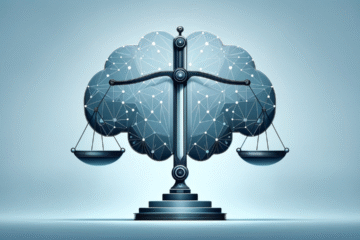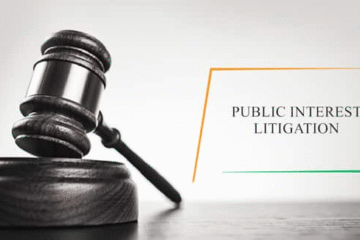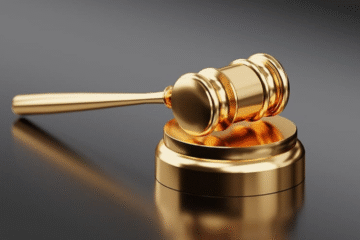
This article is written by Shivam Tah of B. Com LLB of Institute of Law, Nirma University.
Abstract
“Injustice anywhere is a threat to justice everywhere. We are caught in an inescapable network of mutuality, tied in a single garment of destiny. Whatever affects one directly, affects all indirectly.” – Martin Luther King Jr.
This article tries to ponders upon the concept of justice and how justice plays an important role in our society. It explores how the concept of justice originate in India and takes the form as we see it today. It also explores the various legal provisions in our statutory and procedural laws which back our idea of justice. Next this article delves into the concept of free trial and how it plays an integral part in ensuring timely justice. It also explores the various legal pronouncements given by various courts. Then this article talks about right to speedy trial and the nuances attached to this right. Finally, this article concludes by presenting the various challenges faced by our judiciary in ensuring timely justice and how these challenges can be mitigated with modern and feasible solutions.
Keywords
Right to Justice, Free Trial, Injustice, Justice, Challenges, Rights, Equality, Freedom.
Introduction
Over the course of human societies, the quest of justice has shaped the fundamental principles of societal order and governance. The evolution of justice has been significant, spanning from ancient rulers enforcing laws to contemporary legal systems impacted by colonial legacies. This article explores the historical background, focusing in particular on India’s path, where constitutional principles and laws such as the CrPC and IPC enshrine the concept of justice. It examines the importance of basic rights including the right to equality and personal liberty by drawing lessons from important court decisions such PK Tare v. Emperor and Olga Telis v. BMC. After that, the piece delves deeply into the right to a fair trial, highlighting how essential it is to the idea of justice in general. In the midst of the quest for justice, the paper critically evaluates the difficulties ailing the legal system, including a low conviction rate, opaqueness, and judicial system delays. In order to close gaps in the pursuit of justice in India’s diverse and large landscape, it concludes by advocating for comprehensive solutions that range from legal reforms and greater judicial efficiency to heightened legal knowledge throughout society.
Right to Justice
Justice occupies a very important place in any society from the ancient times. All the rulers try to maintain peace and harmony in their kingdoms by imposing some kinds of rules and regulations upon their subjects and make sure that these rules are followed throughout their kingdom. For example, in the Mughal time period, the empire used to have ‘Quadi ‘which oversees that everything happens according to the Sharia. During the British time, when the modern courts are established and the new laws came, it transformed our legal system to a great extent. Today also we somehow follow the system given to us by the Britishers.
As far as the India is concerned, the idea of right to justice is embedded in our constitution and other statutory laws like CrPc and IPC. Even if we look from the lens of colonial era then we can observe that in the case of PK Tare V Emperor where the petitioners were detained in lieu of participation in Quit India movement and were denied to seek their legal counsel, their detention was held illegal by the then judges. Articles of our constitution like article 14(right to equality) and article 21(right to personal liberty)[1] are considered as fundamental rights which means a person can approach the supreme court or high court directly under sec 32 and 226[2] respectively in case they are violated by the state. Since a large part of our population is illiterate and poor Our Honourable supreme court has time and again stress on the importance of legal aid and PIL in our democracy. In the case of Olga Telis V BMC[3] supreme court has held that evicting people from their temporary shelters for whatever reason without providing them alternative settlements is against the idea of justice and equality. The act of 1987(Legal Service Authorities Act) which establishes institutions like Gram Nyayalayas and Lok Adalats made it easier for the people to reach out to these institutions to seek justice.
Right to Free Trial
Right to free and fair trial constitute a central part of the right to justice. In the case of Himanshu Singh Sabharva V Duala M. And others[4], it was held by the SC that if the prosecutor is not acting as per the rules of free trial, then in that case the court can uphold the cause EOD justice under section 165 of Indian evidence act. There are various other sections and articles in our statutory laws and the construction which protects the right to free trial for the ordinary citizens of our country. For example, Article 22(1) of our constitution says that no one can be arrested without informing him about the cause of the arrest and has the right to be informed to consult a lawyer and right to bail. According to Section 281 of the CrPc, the accused must be presented with the substance of the magistrate’s examination in a language that is comprehensible to him, and further require his signature. If we look at the concept of free trial from an international perspective then we can observe that various international bodies have emphasised on the idea of free and fair trial many times. Article 10 of the universal declaration of human rights says that ‘Everyone has, in full equality, the right to a fair and public trial by an independent and impartial court, to determine his rights and obligations and any criminal charge against him’.
Another facet of free trial is right to speedy trial. We all know that that due to huge no of population and limited no of judges in our country, cases take very long time to come to a conclusion. It is one of the primary reasons that the conviction rate is so low in our country. In the case of Sheela Basera v Union of India, SC held that if the case of an accused is pending before any court or magistrate without any reasonable reason then it will be considered as an attack on his fundamental right to liberty and speedy trial. In the same judgement Sc has recognised that speedy trial comes under the ambit of liberty under article 21 of the constitution. Justice Bhagwati in the Maneka Gandhi Judgement[5] reiterated that ‘personal liberty’ in Article 21 is of the broadest amplitude and it covers a variety of rights that go to constitute a man’s personal liberty, some of which have been elevated to the status of distinct fundamental rights and given additional protection under Article 19’ Gandhi case stated that ‘Right to speedy trial draws its inspiration from the Magna Carta which is a historic document in the English law.
Challenges to Right to Free Trial and Justice
- Right to free and fair trial includes right to speedy trial but due to overburden of cases on our judges’ cases got delayed. Alternatives are either not very effective sometimes in criminal cases or are within the purview of very few people.
- Contrary to the legal system of United States and Uk, the judiciary in India lacks transparency. To allow citizens to exercise their right to obtain any information from the government, it should be made more transparent.
- A low conviction rate in India is eroding public confidence in the criminal justice system. The inefficiency of the Indian justice system is a direct consequence of the fact that only about 16 out of every 100 individuals are apprehended for criminal offenses
- Many inmates perish in prison as a result of excessive and improper investigation. With appropriate enforcement of Section 167 of the CrPC, this issue may be resolved.
Conclusion and Solution
Equality, Justice and freedom are considered as the three pillars for maintaining law and order in the society. It is important to note that in a vast country like India there are bound to be gaps in our legal system and all we can do is to mitigate those gaps through proper implementation of existing laws and implementing new laws. It is important for us to understand that Justice is not served until it reaches the most backward class of our society. Our government and courts should take proper steps to minimise the cost of litigation and other expenses. At the same time, it should appoint new judges to the vacant posts so that the efficiency of our legal system can be increased. Judges should be trained properly in drafting and listening skills so that they can take quick and accurate decisions. Police investigation and other authorities should do their work with more seriousness so that investigations can be completed on time. Judiciary can and should play a very important role in revamping the entire justice system of the country by introducing reforms so that people find it easier to approach a court. Government should create awareness about E-filings of cases so that every person can take benefit out of it. Government should take the help of private players to launch new legal services and portals so that people can become more aware of their right. Finally, our society and NGOs should take baby steps to increase legal awareness among the society so that everyone can become aware of their rights.
[1] India Const, Art 14 and 21
[2] India Const, Art 32 and 226
[3] 1985 SCC (3) 545
[4] AIR 2008 SC 1943
[5] AIR 1978 SC 597
Disclaimer: The materials provided herein are intended solely for informational purposes. Accessing or using the site or the materials does not establish an attorney-client relationship. The information presented on this site is not to be construed as legal or professional advice, and it should not be relied upon for such purposes or used as a substitute for advice from a licensed attorney in your state. Additionally, the viewpoint presented by the author is of a personal nature.




0 Comments